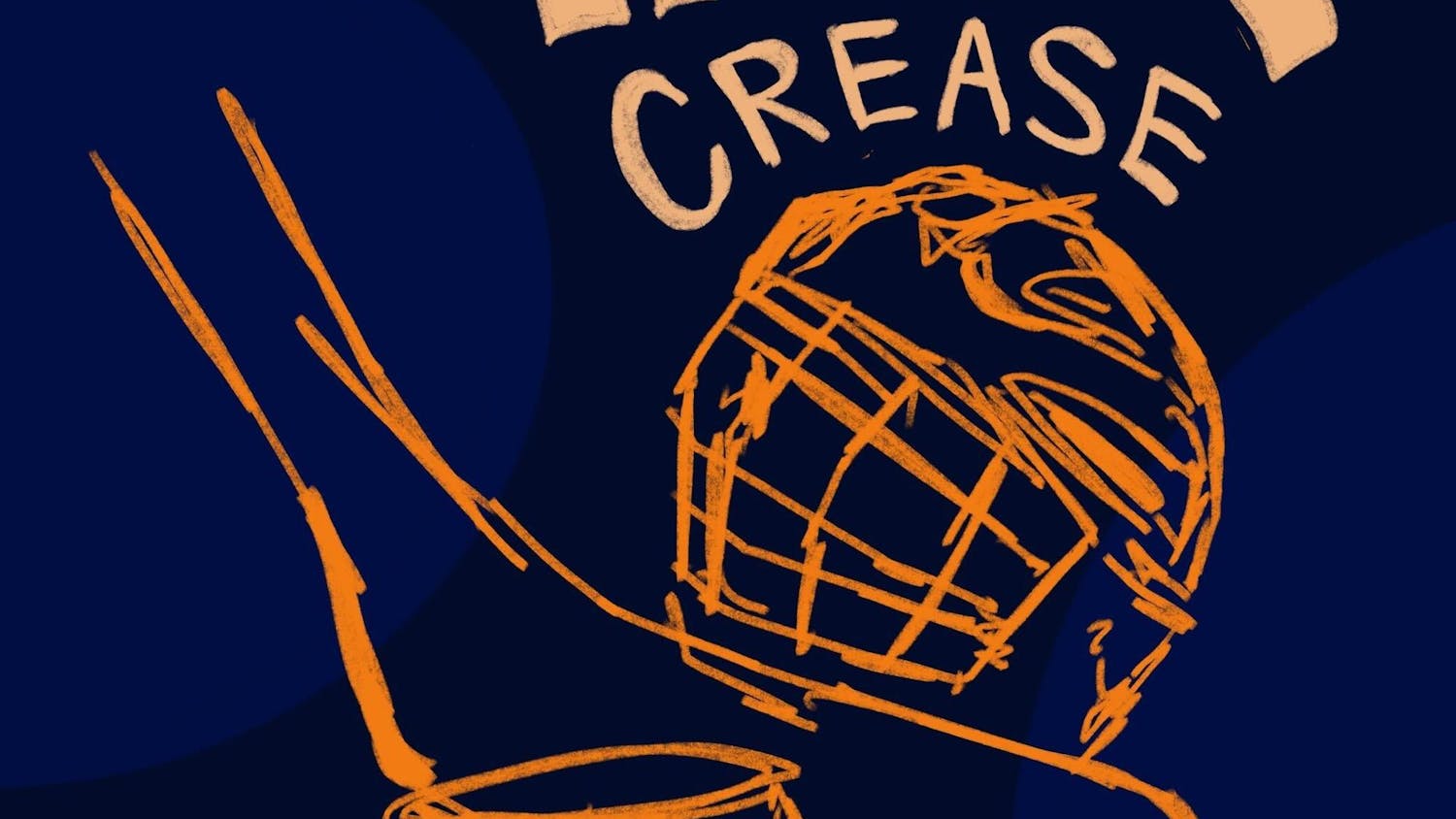I hatethe New York Yankees.
To an ancestral Red Sox fan — an emotional experience undefinable in spoken language — my attestation of rancor is hardly a statement of my baseball allegiance. Nor is it political speech attempting to discredit the Yankees and their ever-present specter over baseball. Rather, it is a prayer passed through hundreds of years of animosity — one that has seeped into the seats of Fenway Park and into the groundwater of the Greater Boston area.
My religious commitment to hating the Yankees exists with a force that would be wholly unacceptable in any other sphere of my life. I fervently dislike math, tea that is too hot and people who walk three-across on a narrow sidewalk. But to equate my feelings for the Yankees to them would be to say I hope that all math textbooks be heated to 451 degrees Fahrenheit, tea temperature be rigidly controlled by congressional oversight and people who walk three-across on narrow sidewalks fail spectacularly in any and all life ambitions they may have. That may sound quite severe. It is.
Ironically, my own life has been full of very little failure in the face of the blue and white pinstripes. No matter. In Boston, it is a universally understood truth that one devotes a certain portion of their available negative energy at any given moment to the Yankees. It is a unique psychological experience, one with equivalencies in sports only. For sports rivalries, “hatred” may be the wrong word, yet English lacks the term for such a contained and concentrated spite. It is a pointedly nonviolent impulse, one that manifests solely in wishing failure upon the Yankees and anguish upon their fans. If the Yankees play a baseball game, I want them to lose. All other outcomes are ancillary, and to whom or in what fashion, situation and even sport they lose in is irrelevant. If the Yankees decided baseball was in the past and transitioned full time into a cricket club, my desire for their failure would persist.
However, to my chagrin, the Yankees have not yet given up on baseball, so the 2022 American League Championship Series featured the Yankees and the second horseman of the apocalypse: the Houston Astros. Unlike the Yankees, I viscerally recall numerous important junctures in which the Astros directly spelled doom for the Red Sox season. The last time the Yankees did that, I was 8 months old. The scientific method stipulates, then, that I should harbor more hatred for the Astros than I do the Yankees. But sports fanaticism is illogical, formed with spiritual understanding, not actual, stimulating experience.
Thus, when the Yankees did not win a single game and were swept away by the Astros like the pitiful dust bunnies I knew they were in my heart, I celebrated. The Red Sox and I, the fan, had somehow succeeded despite the both of us being completely uninvolved. This is the paradox of sports fandom psychology: Involvement is irrelevant to success. Sports brings about its full emotional overload — and psychologists have demonstrated that fans feel their team’s success and failure as their own ‘personal’effort. Several studies have shown that watching your team win has almost identical hormonal responses to actually playing in the game itself. For Red Sox fans, hatred for the Yankees exists in our collective body chemistry.
The peaceful — however naive — among us would undoubtedly suggest reconciliation. Hatred is not a positive emotion, which is no secret to psychologists or anyone who has held a grudge for too long. In Boston, we’ve held maybe the longest grudges in American history, yet somehow we are no closer to forgiving the Yankees for their transgression of existing. Perhaps this is hatred speaking, and we should all be less emotional. Or perhaps being emotional is the whole point of sports anyway. It may pollute our minds — and probably the Charles River — with our worst emotions. But I love that dirty water, so we can make an exception just this once.






